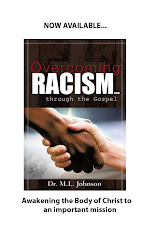For many decades, the claim to right of citizenship based upon this perspective has become an openly contentious debate, as even our own political leadership has waxed weak and opportunistic, cowardly accepting this erroneous train of thought while pretending to be protectors and defenders of our venerable and historic document.
If the previously-expressed version truly expressed the purpose and intent of Section 1, then there would certainly be no argument. All would be as it currently is-- and then some! However, there is a significant part of this section not usually mentioned. The true wording of the opening statement of Section 1 of the U.S. Constitution's 14th Amendment is...
"All persons born or naturalized in the United States, and subject to the jurisdiction thereof, are citizens of the United States and of the State wherein they reside."
The missing clause clearly identifies and defines what personage is entitled to citizenship! It clearly presents two qualifying tests that make any person an outright citizen of the United States. The first is to be born in the United States or any territory claimed such as an embassy or military base. The next is whether the person is subject to its jurisdiction. The jurisdiction portion of the clause ensures that the amendment follows the course of natural law. Without it, there is chaos and confusion, which explains the turmoil surrounding our current "citizenship by birth" dilemma. In addition, the argument follows no sensible logic, nor makes good, common sense. In fact, to accept children born in the United States to parents who enter illegally places an undue burden upon the state and its citizenry. No other nation practices this policy because of its irrational proposition!
Natural law says that since a newborn is not able to choose, then the matter of jurisdiction is inherited from or transferred to them through the parents. Therefore, if the parents are subject to the jurisdiction of the United States, then the children are naturally assumed to be as such also. Again, this flows in accordance with the principles of natural law-- a line of thought that has been reflected and practiced by every nation from their various beginnings! On the other hand, if this principle is flipped, where the place of the child's birth becomes the sole determiner of citizenship as well as an opportunity for security for the parents, chaos and social unrest emerge!
So why was this part of the 14th Amendment necessary? Where did it come from and what purpose did it serve? First of all, Section 1 did address the issue of citizenship, but not for the purpose of establishing a "short cut" for those who are simply born here without taking into consideration of which nation's jurisdiction the parents are subject to. Neither should it be considered a "legal loophole" for the circumvention of current law. Our Immigrationa and Naturalization Laws speak clearly on this matter.
Recognizing that there are actually five sections to the amendment, the first one addressed the issue of citizenship for those having been born in the United States under extenuating circumstances. It stemmed from the matter of whether the slaves then recently-freed under the 13th Amendment and the subsequent Emancipation Proclamation were to be considered citizens. In addition, the 14th Amendment was a formal document declaring the protection of blacks in general, in light of an increasingly hostile U.S. Supreme Court of that day.
It is often said that America is a nation of immigrants, but one thing must be clarified. Black Americans are not immigrants! Immigrants migrate from one part of the world to another. This includes even the "Native American" who is believed to have come to North America via the land bridge. However, they came willingly, on their own. Blacks, on the most part were brought to the Americas as unwilling slaves. This made their situation quite different from any other ethnic or racial group, no longer having knowledge of a home land or discernable links to family or kin. With their true ties to any of the African nations, and having been so brutally separated from family through slave auctions and trades for over two hundred years, the freed blacks truly were people without a home-- except for America itself. In contrast, today's illegal immigrant population chooses to come to America, and move back-and-forth to and from their native lands. Victims have no choices.
Therefore, the 14th Amendment's original intent was to clarify and secure the rights of black people in order to thwart the efforts of the southern democrats and northern sympathetizers who were still fighting to preserve an apartheid society. This amendment brought an end to the authority of the "Dread Scott Decision," which held that black people were not, and could not become citizens of the United States, nor enjoy any of the privileges and immunities of outright citizenship. Its purpose was specific and targeted for that reason, and fits no other case, although politicians and others have used the court system to secure the citizenship rights of other groups.
So the conclusion is this: America still is a nation of laws, and not of men. When properly and correctly interpreted and applied, the 14th Amendment serves its rightful purpose. However, to use it to get around our current immigration laws creates chaos and social unrest. When applied correctly and appropriately, the rights of those truly qualified for citizenship are secured, but when applied unjustly, the rights of all are infringed! Section 1 of the 14th Amendment should be viewed in light of its original intent, thus continuing to guarantee the rights of those meeting the real criteria as stipulated.

